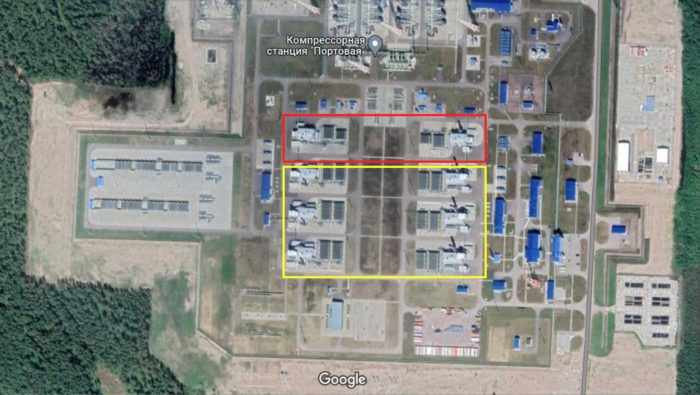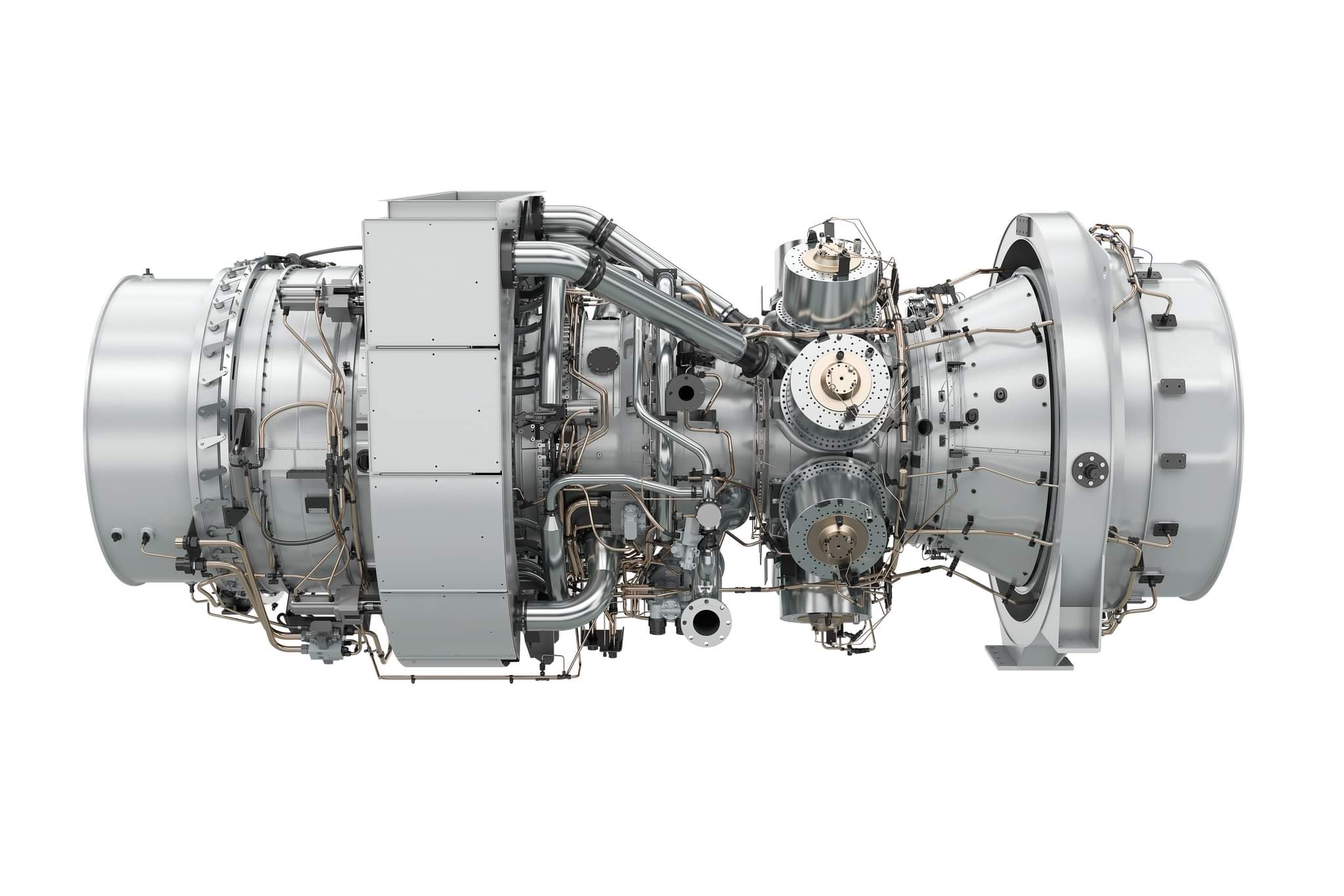A drama is unfolding around a Siemens turbine stuck in Canada. It was sent to Canada for repairs from the NordStream-1 pipeline and ended up under Canada's sanctions against Russian gas and oil giant Gazprom as Russia invaded Ukraine. Gazprom claims it needs the turbine back because otherwise, its NordStream-1 pipeline can't pump enough gas to Germany. Russia cut the flow of gas through the pipeline by 60% and said that unless the turbine is returned by Monday, July 11, it will not restore normal flow.
Amid all this, Germany is reportedly pressing on Canada to relinquish the turbine. Although Robert Habeck, Vice Chancellor of Germany, Federal Minister for Economic Affairs and Climate Action, admits his country made a "grievous mistake" by becoming so dependent on Russian energy, he also says Berlin has no choice but to ask Canada to override its sanctions and return the turbine.
"It is with a heavy heart that we had to ask for this," he told Bloomberg News.
To make it easier for Canada to break sanctions, he offers for the turbine to be delivered to Germany, from which it will be sent to Russia. Ukraine, naturally, pleads for the turbine to stay. Canada must now decide between upsetting "NATO ally Germany or war ally Ukraine," CBC writes.
The turbine dilemma is a bluff
The problem with this dilemma is that it has been artificially construed from A to Z by Russia for the sake of blackmailing the West. The turbine is not needed to restore gas flows. They were shut down by Russia's political decision.
https://twitter.com/EuromaidanPress/status/1541095775240966144?t=A7gKf9d3JSFaDIyZXst0aw&s=19
Gazprom claims the turbine is needed for the Portovaya gas compressor station. This station, according to open data,
has eight turbines (yellow). Six are working turbines, and there are two half-capacity ones as spares (red).
Since one is on repairs in Canada, that should leave seven other turbines. However, Gazprom announced only three are working, which is why they needed to cut the gas flow and urgently want the one in Canada back.
Where did the four other ones go?

Russia claiming all turbines suddenly broke down is a "fairy tale," says Ukrainian energy expert Mykhailo Honchar: "no expert will believe four Siemens turbines fail at the same time." And even so, Russia could take turbines from the Nord Stream-2 pipeline nearby, which was frozen with the advent of Russia's war against Ukraine.
It doesn't do this, instead demanding Canadian sanctions are lifted, intentionally, Honchar believes.
Moreover, it is possible that Russia will try to exploit this crisis to get Nord Stream-2 running despite its closure due to sanctions, he explained to Euromaidan Press. This could happen when Nord Stream-1 undergoes a planned annual technical checkup on 20-21 July.
It might very well happen that Rostekhnadzor, Russia's regulating body, will suddenly find immense technological problems and shut down Nord Stream-1 until further notice. Then Russia will get a chance to point fingers at the empty Nord Stream-2, finished but not launched due to sanctions, and insist to Germany that the only way to get gas salvation is to launch Nord Stream-2, Honchar predicts.
The gas can go through Ukraine like it always had before
Ukraine's transit capacity equals that of Nord Stream 1 and Nord Stream 2 together. It was this route that was used before the construction of both Nord Streams. Right now, only one route of the Ukrainian Gas Transport System is used -- Urengoy-Pomary-Uzhhorod. Russia has cut off gas transit through other Ukrainian routes "in order to dry out the European gas market and escalate prices," Honchar says.
Additionally, Russian gas could get to the EU via the territory of Poland and Belarus.
Germany and the European Commission could insist Russia use these routes, Honchar told Euromaidan Press. Instead, Germany chooses to demand Canada lift sanctions in order to appease Russia.
"It's a very sly position," Honchar comments. "They're basically counting on Canada giving in to Transatlantic solidarity. 'Please save Germany, we're all G7 here, we need our turbine, because of this unfortunate incident that it got under sanctions. We need gas in order to not freeze in the winter.'"
Honchar says it's the official position of the German government, and Economy Minister Habeck was chosen to express this "indecent proposal."
"In the last several decades, the German policy has been to press on the weakest. Canada is the weakest link here; Germany knows that it can be pressured by the need for energy solidarity within the G7, and will definitely be more agreeable than the Kremlin."
If Canada gives in, the unprecedented western sanctions against Russia for the full-blown invasion of Ukraine will get their first hole, and this will attract further violations. There is already talk about Germany's agreement to the EU's oil embargo being ill-considered, and the country needing an exception, Honchar says.
What Germany and Canada should do
Don't search for easy ways, there are none, Honchar says. Germany should declare that Russia's actions are political, not technical, in nature, and state that Germany is preparing for winter without Russian gas. Even more so because the European Commission has already stated it is preparing for a complete cut-off from Russian gas. It is clear that this is what Russia is leaning towards, either now or closer to the cold months.
Canada should say that sanctions must be followed and that the shipment of this turbine is a violation of them. It should state it refuses to violate sanctions as part of agreements inside the G7.
Other solutions for the gas crisis include measures to save gas to get off the Kremlin's gas needle:
cooling winter heating, temporarily keeping coal and nuclear plants, lifting restrictions on shale gas production in the USA.
Related:
- How to make sanctions really painful for Russia, immediately
- 10 tricks Russia uses to evade sanctions
- How EU would benefit from reducing its reliance on Russian gas
- The scope of the EU energy dependence on Moscow and practical ways out
- The EU oil embargo is not enough. How to curb Russia’s petroeuros
- International sanctions slam Russia’s finance, economy, culture, sports: a list
- How Western sanctions cripple Russia’s war machine: no modern tanks, navigation systems or drones

